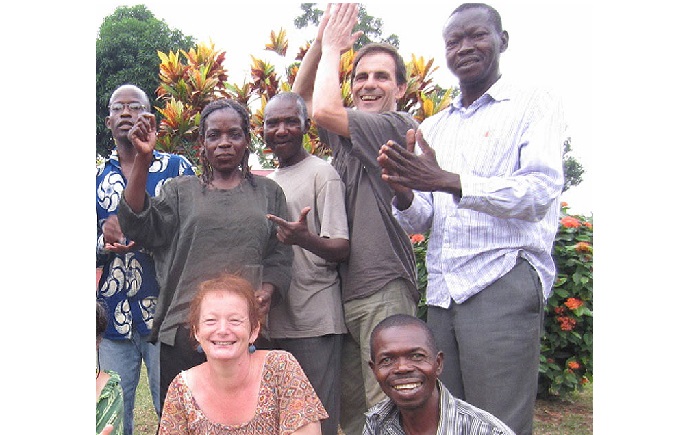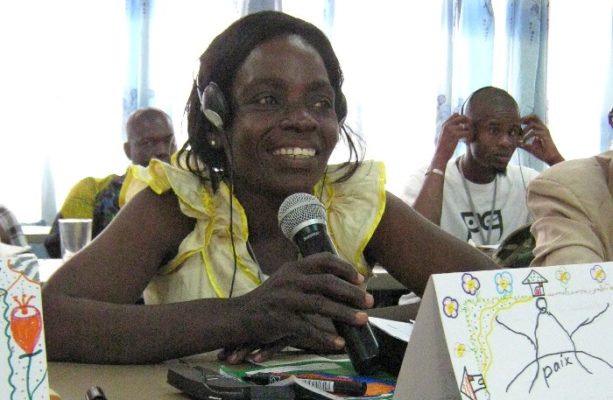How ATD Fourth World Looks for Peace

By Isabelle Pypaert Perrin
Last March, I visited the Central African Republic to meet ATD Fourth World members there.
It was moving to see how our members have been able to identify ways to progress and to run pilot projects even when life in the country is so difficult.
Currently, our members there are focused on two projects.
- The first is a research project on education where parents, teachers and young people find ways, based on their own experiences, to create conditions where children can succeed in school. This project was inspired by a recent educational seminar in Burkina Faso. Gisèle Lamassi, who was involved in the Burkina Faso seminar as a delegate, said how much that seminar changed her. “Now I know that all children have the right to attend school. This gives me the courage to push them. Sometimes my children say, ‘But Mama, I can’t go to school because I don’t even have a notebook.’ Now, I tell them, ‘Here’s a scrap of paper, so go! You must go to school. And I will go to speak to your teacher and the headmaster.’” And that’s exactly what Gisele does! She continued, “And so my daughter started going to school! Now, my children are going to learn well in school.” Gisèle really wants to try to understand and progress with other families on the issue of education.
- The second project is a very ambitious one to train socio-cultural mediators. We can learn a lot from this work.
Everybody that I met and encountered in the Central African Republic reminded me how ATD Fourth World is looking for peace, but not just any peace. Because peace is linked to recognition and sharing of knowledge. As Gisele Lamassi said to me:
“Tet ansamn:* these words chase away poverty. Putting our minds together means that all of the ATD members around the world feel the same spirit. Because of this spirit, even when poverty gets very bad, it cannot really hurt me. What can hurt is if you remain alone, if you don’t feel like a person. But when you can be together with others and feel free to say what you think, only then can you truly live. The last few years here have been hard. But because with ATD I’ve found something truly precious, in spite of everything, peace has always remained in my heart. I have suffered from poverty. I have experienced violence and humiliation, it was like a disease. But thanks to ATD, this disease is over. I have healed myself with the hope that I’ve found in ATD. Despite the fact that we were in a war zone, ATD continued moving forward. Thanks to this, there is always someone here who will reach out to you in your misfortune.
“I think that I have overcome deep poverty because of the intelligence and knowledge that are created when we come together as members of ATD Fourth World. I was so often humiliated in my life that, before, I didn’t dare open my mouth. Now, that’s done with. I know that I have intelligence about how to overcome poverty. Young people can’t repeat everything we endured. We have to move forward in a meaningful way.
“If Joseph Wresinski had not gone so deeply into the poverty in Noisy-le-Grand, ATD would never have made any progress. ATD has grown strong here; even the harsh current events could not uproot it. If we forge ahead, it will help improve conditions for our country.
“This means training our young people. They need to have a vision of how our whole country can move forward. This is what I want for the young people—not money but a lot of intelligence. That is what ATD needs, that is what our country needs. All those things we have experienced in all these years cannot be repeated. We need to make the right choice, to choose peace. The spirit of ATD guides us, the spirit of Joseph Wresinski continues to inspire us. One day poverty will be blotted out and we will no longer need to talk about it.”
* Tèt ansanm is an expression in Haitian Creole meaning that people show solidarity by putting their minds, shoulders, and hearts together. It is used by ATD Fourth World to describe its governance, beginning with people living in the most extreme situations of poverty.


